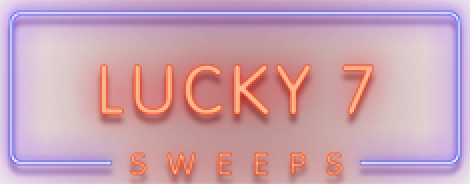Nothing beats the rush of reading those magic words: “Congratulations, you’re a winner!” But before you jump into celebration mode, it’s important to hit pause. Not every prize notification is legit—and in the world of sweepstakes, scams are all too common. Fortunately, knowing what to look for can help you avoid getting duped and make sure your wins are real.
Start with the Basics: Did You Enter the Sweepstakes?
This may sound simple, but it’s your first and strongest line of defense. If you didn’t enter a sweepstakes, you didn’t win it. It’s that straightforward. Scammers bank on the fact that people enter so many contests they won’t remember each one. That’s why keeping a list of your entries can be incredibly helpful. Jot down the contest name, the sponsor, and the entry date. That way, when you get a prize email, you can quickly check if it matches anything on your list.
Telltale Signs You’re Dealing with a Scam
They Want You to Pay for Your Prize
This is one of the most obvious signs of a fake. Real sweepstakes winners don’t have to pay to claim their prizes. You might have tax responsibilities later, but you won’t be asked to pay taxes, shipping fees, or handling charges upfront.
The Message Is Super Generic
If the message says “Dear Winner” or doesn’t mention your name at all, that’s a bad sign. Most real notifications will use your name or username and reference the specific sweepstakes you entered.
Suspicious Email or Phone Number
Take a good look at the email address or phone number that sent you the win notification. Is it from an official-looking domain (like @lucky7sweeps.com), or does it come from a random Gmail address? Is the phone number verified or masked? Real sweepstakes organizers want to be trusted and reachable.
More Red Flags to Watch Out For
Pressure to Act Fast
Scammers love to use urgency. “Respond within 24 hours or lose your prize!” is a tactic designed to stop you from thinking it through. Real sweepstakes usually give you several days—or even weeks—to respond and claim your prize.
Poor Grammar or Spelling
Professional companies don’t make a lot of mistakes in their winner emails. If the message is full of grammar errors or just feels “off,” trust your gut.
Links That Don’t Match
Hover over any links in the message without clicking. Do they lead to a legit website? If the domain looks unfamiliar or doesn’t match the company, that’s another warning sign.
What Real Sweepstakes Win Notifications Include
Your Full Name or Username
You should be personally addressed in any real win notification. You provided this info when you entered, and the sponsor should use it.
The Name of the Sweepstakes
A legit message will include the exact sweepstakes title and often reference the sponsor. It might even have a link to the official rules.
Clear Instructions Without Threats
You should be told exactly what steps to take next—such as replying to the message, signing a prize claim form, or submitting an ID for verification. None of these should involve payments or threats of prize cancellation.
Steps to Confirm the Win Is Real
1. Double-Check Your Entry Log
Match the prize to your own records. If you didn’t enter anything similar, be cautious.
2. Visit the Official Website
If the win comes from a brand, visit their official website—not the link in the email. Use their contact form or customer support info to confirm the win.
3. Look for Public Winner Announcements
Many sweepstakes post their winners on social media, newsletters, or blogs. If you’re a winner, you may already be listed.
Stay Ahead of the Scammers
Want to avoid scam messages altogether? Here are a few habits to protect your sweepstakes hobby:
Use a dedicated email address for sweepstakes entries. It makes spotting spam or scams easier.
Enable two-step verification on your email for extra security.
Keep entries organized with a spreadsheet or sweepstakes app.
Don’t enter contests that seem too good to be true—like winning a car for doing absolutely nothing.
What to Do If You Think It’s a Scam
Don’t reply. Avoid giving the scammer any info or reason to keep targeting you.
Report it. You can report sweepstakes scams to the FTC or your local consumer protection agency.
Spread the word. If you’re in a sweepstakes community or forum, let others know. These spaces are great for staying up-to-date on active scams.
Keep the Fun—Lose the Risk
There’s nothing like the joy of winning a prize. And with a few smart habits, you can make sure every win is safe and scam-free. Pay attention to the details, stay organized, and always trust your gut. You work hard to enter those sweepstakes—so make sure your rewards are the real deal!




